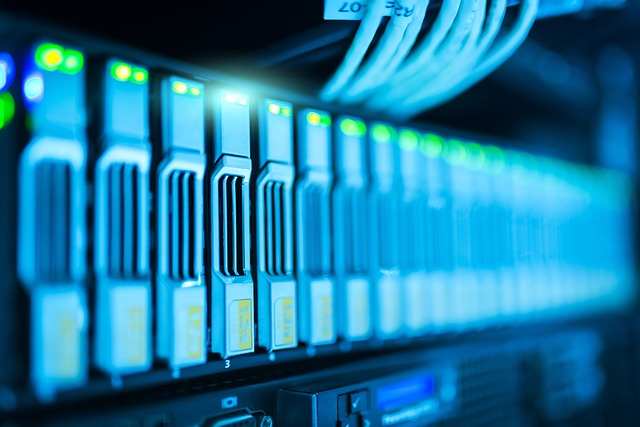A data center security system is designed to protect the physical infrastructure, data, and operations in the data center. What are the common security system components in the data center? Data center security systems work together to provide comprehensive protection against physical and digital threats, and the specific security measures implemented may vary depending on the size, location, and sensitivity of the data center, as well as industry regulations and compliance requirements.
Access control system. Access controls are critical to data centers, such as biometric authentication, key cards, PIN codes, or multi-factor authentication to regulate and monitor access to facilities, server rooms, and restricted areas.

Video surveillance. Video surveillance consists of surveillance cameras located throughout the data center facility that can record and monitor activities inside the data center. CCTV cameras can detect and organize unauthorized access, track events and provide critical evidence in the event of special situations such as security breaches.
Intrusion detection and prevention systems. IDPS is an intrusion detection and prevention system that can be used to monitor data centers for any unauthorized or malicious activity, including sensors, alarms, and motion detectors that can detect attempts to physically damage or tamper with equipment or cables.
Fire detection and extinguishing. Fire detection systems, such as smoke detectors and heat sensors, are important to prevent and mitigate fire risks in data centers. Fire suppression systems, such as sprinklers or detergent systems, enable rapid fire suppression and minimize damage to equipment and data.
Environmental monitoring. Strict environmental conditions are required in a data center to maintain the optimal performance of devices and prevent device failures. Environmental monitoring systems that track temperature, humidity, air quality and water leakage can ensure that conditions are kept within acceptable limits.
Network security. Strong network security measures in the data center can prevent external threats and unauthorized access. Such as firewalls, intrusion prevention systems, virtual private networks, and other network security solutions can include data security.
Data encryption. Data encryption is important for critical information in the data center. Encryption algorithms and protocols protect data at rest and in transit, ensuring that data is secure without leakage, and that data cannot be read without encryption keys.
Power supply and backup system. Uninterruptible power systems and backup generators are key to maintaining circuit continuity in data centers. The redundant power supply system can prevent interruption caused by power outages or fluctuations, and ensure uninterrupted power operation.
Security monitoring and management. Security monitoring systems summarize and analyze data from many sources, such as access logs, intrusion detection systems, and video surveillance. Security personnel use these monitors to monitor, analyze and respond to security incidents and other potential threats.
Data center security systems work together to provide comprehensive protection against physical and digital threats. Specific security measures in real time may vary depending on data center size, location, and sensitivity and industry-wide regulatory and compliance requirements.

 EN
EN
 CN
CN








